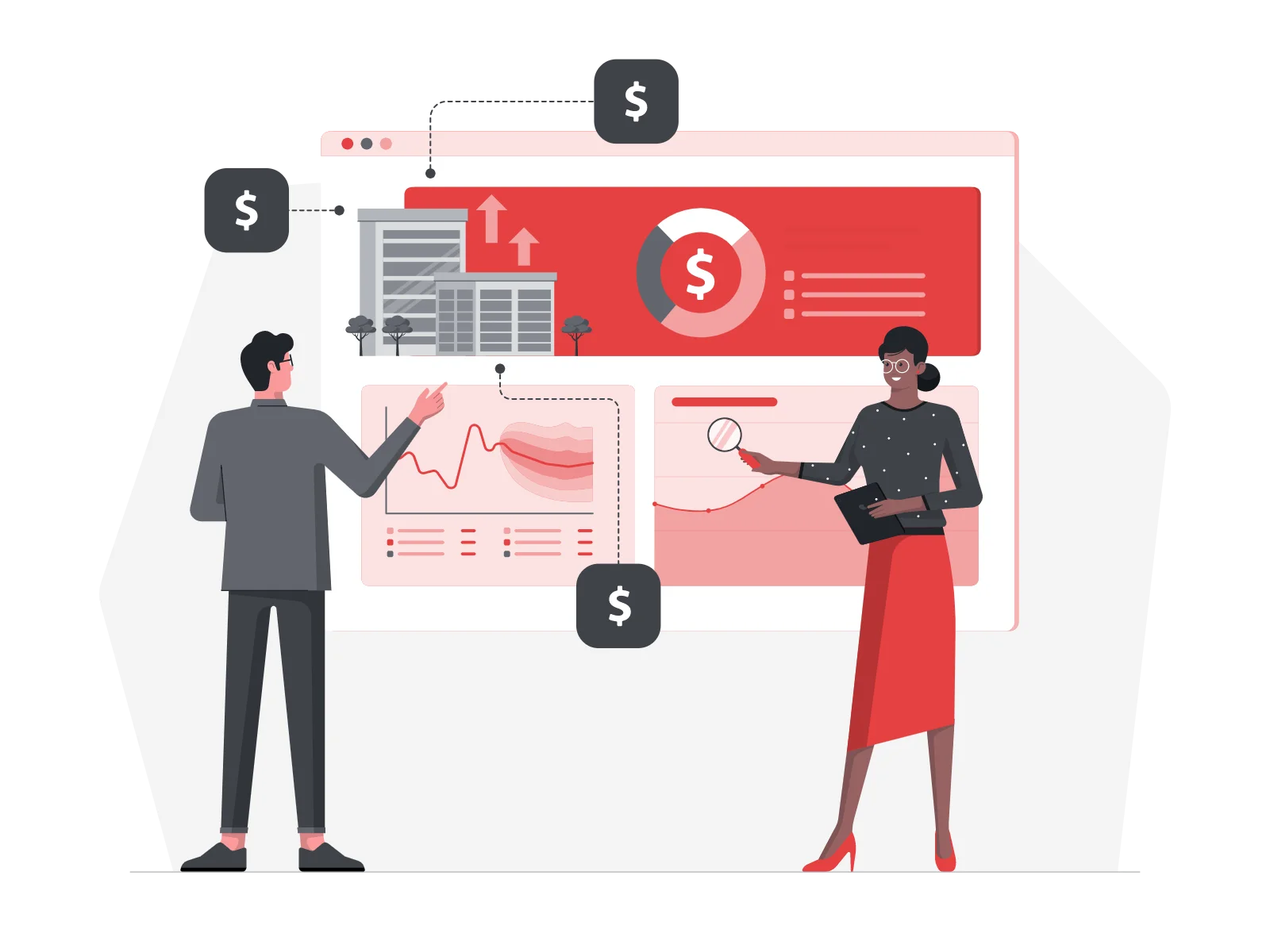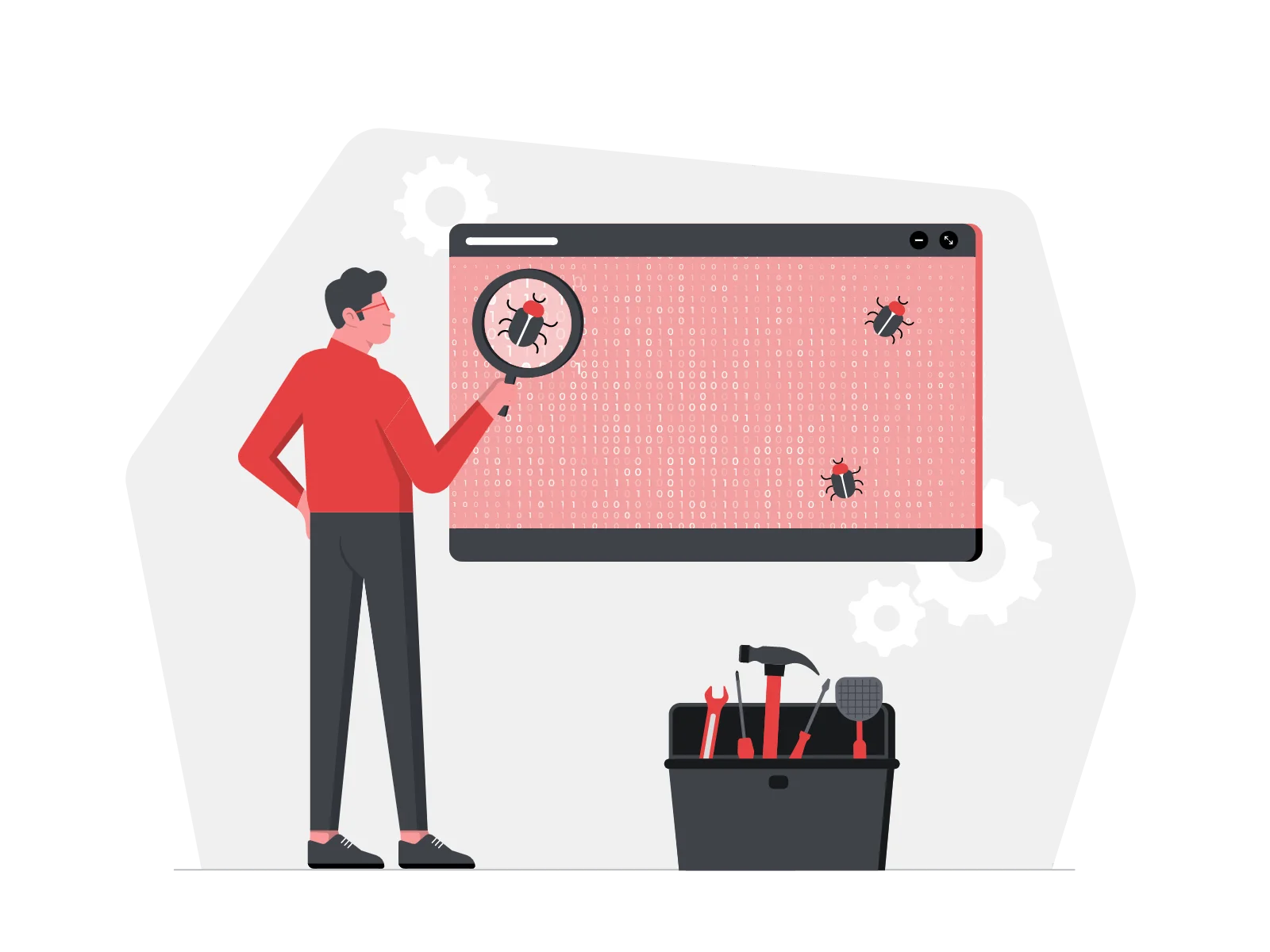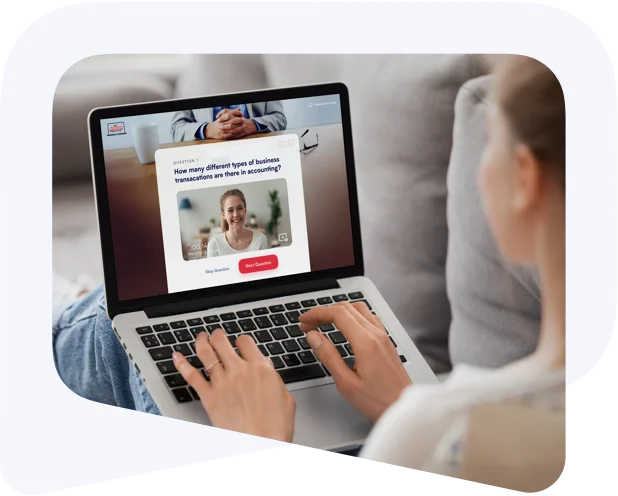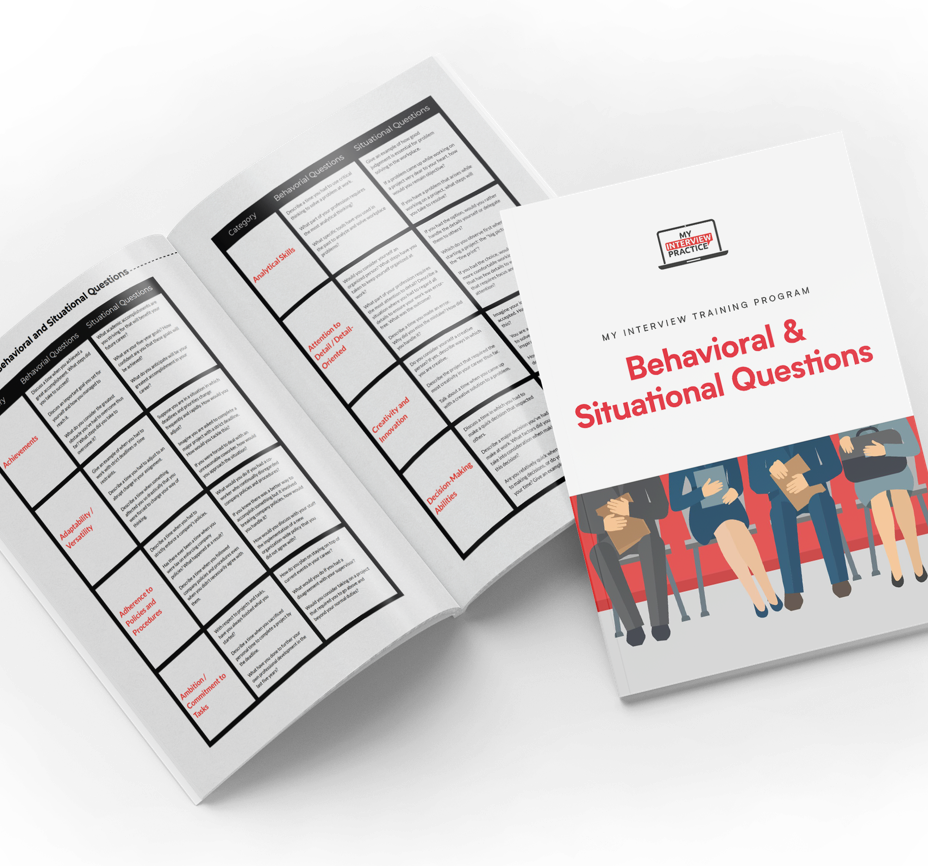Behavioral Interview Questions About Failures

Introduction
Everybody fails. Interviewers know this and don’t expect candidates to be perfect. However, they want to learn about your failures and will ask about them for two reasons – they want to find out how you react to failures and what lessons you have learned by failing. Being able to bounce back and recover after a failure is a desirable trait in an employee. Turning failures into opportunities to learn is another characteristic hiring managers look for. Thomas Edison, the inventor of the light bulb, is quoted as saying, “I have not failed. I just found 10,000 ways that won’t work.” Being able to describe how you work through failure and use it to improve yourself is key to a successful interview.
This article will help you get ready to answer behavioral questions that help employers understand your ability to deal with failure. Knowing how to correctly respond to this type of question will help you demonstrate your ability to help a company maintain its ethical standards and convince the interviewer you are the right candidate for the job.
Behavioral Questions
Questions about your failures and how you react to them are a specific type of behavioral question. Behavioral questions explore how you handled situations in your past positions and indicate what you will do when faced with similar challenges in the future. You can identify behavioral questions when the interviewer starts the question with something like, “Tell me about a time …” or “What steps did you take …”
Questions About Failure
The best way hiring managers can learn about your ability to deal with failure is to ask questions about your previous experiences. These questions require you to create a story and relate it in an organized and clear fashion. Interviewers will note why you failed, the methods you used to overcome failures, and the lessons you learned. They hope to hear you are effective at responding to failures and learn from your mistakes in order to not repeat them. Interviewers will also appreciate that you are unlikely to make the same mistakes if they decide to hire you.

How to Answer Questions Related to Failure
People are generally uncomfortable talking about their failures since they address negative aspects of your career. You are conditioned to focus on your positives and put your best foot forward during an interview. It is much easier to discuss your achievements, successes, and the key points described in your resume. However, if you anticipate behavioral questions about failure and are prepared to answer them, you will find it easy to respond to these questions during an interview. Looking for additional practice to ensure you exude confidence? Our training here will showcase your positivity and self-confidence in your response.
Failure-related behavioral questions can best be responded to using the STAR format. This helps you organize your response by creating a story related to the question.
The STAR format uses the following framework:
Situation – Briefly describe a situation related to the question. Ensure the situation you use describes a time you failed but not something that was catastrophic or something from which you didn’t recover.
Task – Summarize the task or goal you needed to achieve. Describe how responding to a failure appropriately helped you overcome it or learn a valuable lesson you could apply the next time something similar occurred.
Action – Talk about the actions you took to overcome the failure. These actions should focus on the steps you took to fix the problem or minimize its impact.
Results – Discuss the results you achieved and the impact they had on the organization. Talk about how the failure was addressed, the lessons you walked away with, and how you would apply these going forward.
When preparing for an interview, you should anticipate this type of question and have your STAR stories ready. The stories you relate should be relevant to the position for which you are interviewing so they resonate with the hiring manager. Preparing your stories in advance and rehearsing them before the interview will give you confidence. It will also enable you to respond to the interviewer’s questions by providing compelling stories and communicating them clearly and expertly.
Failure-Based Behavioral Questions
Here are some examples of failure-based behavioral questions you can anticipate during an interview, the rationale behind them, and an example of how you can respond to them.

Question: Tell me about a time when you failed.
Explanation: This is the most common question about failure you will be asked during an interview. Every other behavioral question about failure is a version of this one. Remember the interviewer seeks to understand two things by asking this question – first, how you respond to failures, and second, do you learn from your failures so you will not repeat them. It is almost guaranteed that you’ll be asked some variation of this question during an interview. You should prepare a story that demonstrates how you responded to failures in the past and how you learned from them.
Example: “(Situation) In my last job, I was assigned a project that had an unrealistic deadline and not enough resources to complete it. (Task) I knew the project was doomed to failure from the very beginning, but rather than negotiating for additional time or resources, I agreed to take it on to impress my manager. (Action) I did everything within my power to complete the project on time and under budget. However, I still failed. Results) Fortunately, this did not severely impact the company, and I was able to complete the project several weeks later. I learned it is better to confront issues early so they can be resolved rather than accept the status quo and have to explain failure later.”
Question: Tell me about a time when a project you were working on failed.
Explanation: This is a variation of the “tell me about a time you failed” question. You can use the questions in this article to learn about the different variations you will be asked so you can create your STAR stories to respond to each one of them. Practice them by asking the questions out loud and answering them using your STAR stories. Doing this in advance will help you be prepared when you are inevitably asked similar questions during the interview.
Example: “In one of my previous jobs, I was asked to develop a new software application which would allow employees to register for the company’s benefits program. I had never worked on this type of application and was unsure about how to program it. Still, I knew I had to develop the software because nobody else was available. Rather than confess my inexperience and asking for additional resources and information, I plowed ahead to develop the application. When we put it into production, it failed miserably, and the employees refused to use it. We eventually scrapped the application and bought something from the commercial market. I accepted full responsibility for the failure. This taught me to realize my limitations and ask for help when I need it.”
Question: Can you describe how you reacted to a situation in which you failed?
Explanation: As much as you try to prevent it, you will eventually fail. How you react to failure and recover from it is a key quality employers look for in the people they hire. You should be able to describe both the failure and your reaction to it when asked. De-emphasize the failure, and spend more time describing your reaction and how it benefited both you and the organization.
Example: “I was once assigned responsibility to acquire an important customer for the company. Succeeding at this would have helped the company achieve its sales revenue objective for the quarter. Unfortunately, I was beaten by a competitor. Rather than blaming the competitor, our pricing structure, or our products’ quality, I took full responsibility for not completing the sale. I reviewed my efforts and determined that I did not fully understand the customer’s requirements. I now ask a great many questions before pitching my products to a customer. This has resulted in increasing my close rate and consistently achieving my sales quotas.”

Question: What is the greatest lesson you learned from one of your failures?
Explanation: Many people operate under the philosophy that there are no failures, only lessons. The ability to turn a failure into a lesson is a key quality employers look for in employees. It would be best if you had several STAR stories prepared which illustrate your ability to do this. Try to make your stories relevant to the type of business conducted by the organization with which you are interviewing.
Example: “Probably the greatest lesson I ever learned from a failure occurred early in my career. I had just graduated from trade school and was apprenticing under a master plumber. Trying to impress them, I took a shortcut that I thought would save time and money. Instead, the system we were working on failed, and we had to spend extra time and money repairing it. What I learned was to do things right the first time rather than attempt shortcuts.”
Question: Have you ever witnessed one of your colleagues failing, and if so, how did you react?
Explanation: Sometimes, it is not our own failures that are important but rather how we react to the failures of the people we work with. Organizations promote teamwork and seek to create environments in which teaming up is part of the culture. Helping your associates overcome failure demonstrates your ability to work on a team and your commitment to the organization’s success. It also provides you the opportunity to learn from somebody else’s mistake or failure.
Example: “It is difficult to witness one of my team members failing. When this happens, I often feel as bad as they do. An example of this was when one of my associates set up their manufacturing fixture incorrectly and proceeded to make parts. They only realized the error after having manufactured several dozen pieces. This put the entire department behind schedule. My teammates and I volunteered to stay late to make up the lost production. We were able to do this and were back on schedule by the following day. The lesson I took away from this experience was to double-check my work. Our department instituted a process of verifying each other’s setups which prevented this incident from recurring.”

Additional Failure Questions
What has been your biggest failure in your career?
Can you give me an example of how you were able to bounce back after a failure?
Describe a situation when you had to tell your manager about a failure.
Have you ever been part of a team that failed, and what was your part in the failure?
How comfortable are you informing a client that you weren’t able to satisfy their requirements, and can you give me an example?
Have you ever taken responsibility for a failed business initiative even though it wasn’t your fault?
Describe a situation in which you were able to turn a failure into a positive outcome.
What has been the biggest business failure you have witnessed in your career, and what did you learn from it?
Have you ever had to choose between failing and doing something unethical to prevent it?
Tell me about a time you took a risk, knowing that failure would have dire consequences.

The key to nailing your interview – practice, practice, practice.
As with anything, practice makes perfect. The most common ways to practice are with in-person mock interviews or a list of questions. While these options are a great place to start, they can leave a lot to be desired.
Practicing with In-Person Mock Interviews and Question Lists
One way to get valuable interview practice is to set up in-person mock interviews. Unfortunately, they can be somewhat inconvenient. You have to find someone to conduct the mock interview, and schedule a meeting every time you want to practice.
Question lists offer a much more convenient way to practice interviewing. Unfortunately, they do little to recreate actual interview pressure. In a real interview you’ll never know what’s going to be asked and this is exactly what can make interviews so stressful.
Interview Simulators – The best of both worlds.
With interview simulators, you can take realistic mock interviews on your own, from anywhere.
My Interview Practice offers a simulator that generates unique questions each time you practice, so you’ll never see what’s coming. There are questions for over 120 job titles, and each question is curated by actual industry professionals. You can take as many interviews as you need to, in order to build confidence.
| List of Questions |
In-Person Mock Interview |
My Interview Practice Simulator |
|
|---|---|---|---|
| Questions Unknown Like Real Interviews | |||
| Curated Questions Chosen Just for You | |||
| No Research Required | |||
| Share Your Practice Interview | |||
| Do It Yourself | |||
| Go At Your Own Pace | |||
| Approachable |
Our interview simulator uses video to record your responses, and recreates the pressure you would feel in a real interview. This also allows your to see how you perform and perfect your responses. You can then share your responses with colleagues and mentors so that you can get valuable feedback.
The better way to practice interviewing.
Simulate realistic interviews for over 120 job different titles, with curated questions from real employers.
Learn More
Get the free training guide.
See the most common questions in every category assessed by employers and be ready for anything.
Get the Guide



